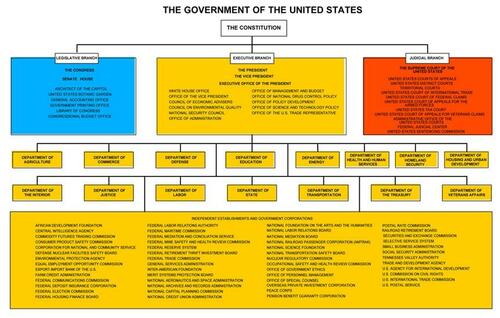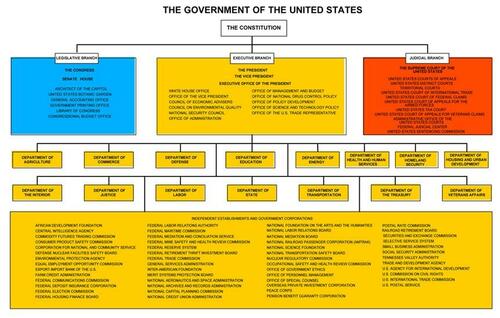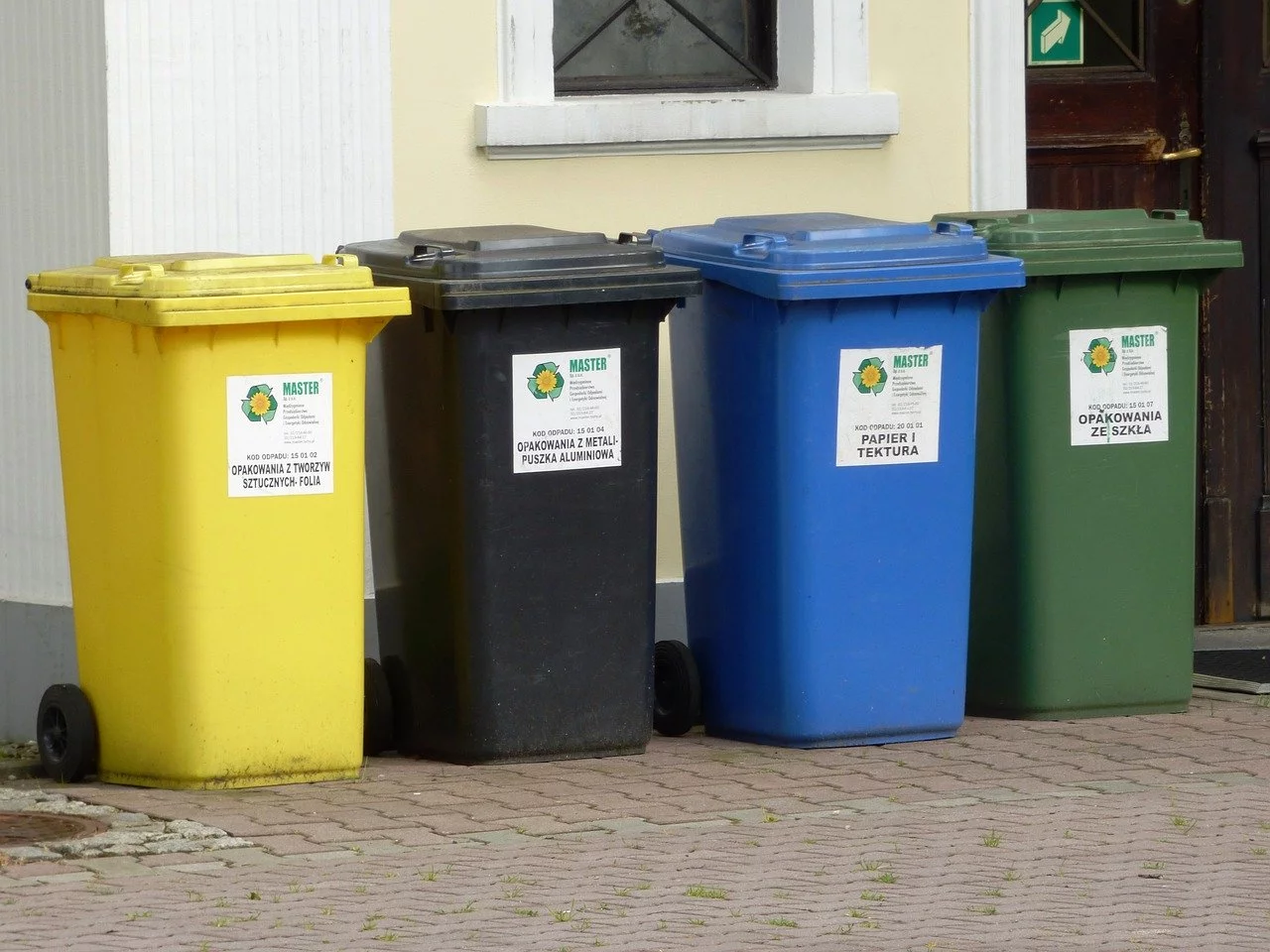
The Overclass Exposed
Authored by Robert Gore via StraightLineLogic.com,
„It is difficult to get a man to understand something when his salary depends upon his not understanding it.”
-Upton Sinclair
The overclass has produced far less than it has taken and has destroyed far more than it has created.

The overclass is the cohort in both government and ostensibly private enterprise who derive their sustenance directly or indirectly from government in exchange for goods or services. It consists of the relatively small group who rule, and the much larger group, numbering in the millions, whose defining characteristic is that government is the source of their compensation. For analytic clarity, this group does not include people who receive money from government (e.g. Social Security, AFDC) that is not salaries.
The overclass includes the massive administrative state, the military, intelligence, government contractors, much of public and private academia, many nongovernmental organizations and foundations, parts of the mainstream media, much of the scientific and medical establishments, and state and local governments. A substantial chunk of the $11 plus trillion that all levels of government will spend this year, an estimated 38.12 percent of the GDP, will flow into these pockets (figures from usdebtclock.org).
The underclass consists of that group who work in non-government-related private enterprise. Their output must satisfy a market test—someone has to be willing to pay more for it than the cost of the inputs used to generate it. This is a crucial distinction between the underclass and overclass, who are not subject to this market test.
While some members receive high incomes and are wealthy, the underclass is the underclass because legally it is subjugated to the overclass; its production supports the overclass. Statistically, underclass average compensation and benefits are now less than those of the overclass (it used to be the opposite).
The overclass produces less than it consumes and has grown relative to the underclass. The mounting national debt confirms both assertions. Ironically, that debt provides handsome incomes to the overclass sector that markets and trades it.
While billionaire oligarchs, prominent politicians, celebrities, journalists, academics, and woke warrior leaders arouse the most ire and dismay among their opposition, it is the overclass layer just below that top strata that has a vice grip on American governance and is the biggest obstacle to any meaningful change. They will never let go because they must hold on; current arrangements provide their livelihoods, prestige, and power. What makes this group so invidious is that its role is rarely acknowledged or even recognized.
It is a common observation that transfer payments from the welfare state essentially buy votes and keep recipients docile. However, who has more political influence―those recipients, or the bureaucrats who administer transfer programs; professors who spend their careers chasing government grants; Department of Agriculture officials who dispense crop support payments or oversee the department’s myriad programs and the agricultural interests who are their beneficiaries; the executives and employees of defense contractors; the TSA goons who harass you at the airport; the IRS goons who harass you at tax time; the DHS America lasters who champion open borders; scientists and administrators at national laboratories; researchers who cook up government-mandated vaccines; spooks who cook up regime changes; teachers who dumb down and indoctrinate our kids; government censors; central banker functionaries who debase the currency; and so on and so on and so on. Transfer payments are huge and unsustainable, but their recipients’ political clout is dwarfed by that of the overclass. Transfer payees can’t pay Hillary Clinton $600,000 for a speech; Goldman Sachs can and did.
The second tier of the overclass almost completely escapes moral scrutiny. They are not remote figures like the rulers and string-pullers. They are relatives, friends, neighbors, and acquaintances, and they go to the same stores, cocktail parties, backyard barbecues, sporting events, school plays, churches, and synagogues as the underclass. Overclass incomes make them a large percentage of what’s left of the shrinking middle class, although affluence puts many of them above middle class.
Rarely will productive members of the underclass that supports the overclass think about their relationships with the overclass in such terms. It’s not: “Bill works at the Department of Energy and wastes my tax dollars working on green energy scams”; it’s: “Bill works at the Department of Energy and we get together with our wives for dinner every so often.” If an underclass son or daughter is admitted to an Ivy League school, graduates, and secures a high-status, high-paying job in government, most underclass parents are delighted.
The moral posture of the overclass rests on social conditioning that politely overlooks two facts. Overclass compensation is stolen from the productive underclass, and the market value of overclass output is exceeded by the market value of the inputs used to produce it. The national debt grows as the real income of the underclass shrinks. The overclass’s face-saving justification is that the value of their output is measured in non-market metrics—the common good, public interest, or some other airy intangible.
What shreds that justification is the overclass’s massive destruction of value measured by either market or non-market metrics. America’s wars since World War II have cost tens of trillions of dollars and millions of lives. As the empire crumbles, can anyone cite a single intangible value they’ve advanced? They’ve had nothing to do with the defense of America proper, and everything to do with protecting various “interests” that are generally not specified because they are usually overclass rackets.
The trillions that government has thrown at health, education, and welfare have not produced equal or greater trillions’ worth of health, education, and welfare. They have produced all manner of social pathologies, including falling life expectancies; dumbed down, indoctrinated kids; greater than 50 percent out-of-wedlock birth rate; and crime-infested cities. The overclass has produced far less than it has taken and has destroyed far more than it has created. By any standard of value, it has failed.
Repeated failure is not a recipe for self-esteem. Overclass insecurity is often hidden by arrogance and maintained by fig-leaf justifications that among themselves they refuse to question. However, outside of their insular psychological garrison, those justifications are under increasingly strident attack, and they see an existential threat.
Their support structure is collapsing. The unbalanced arithmetic that allowed for an expanding overclass, whose real compensation steadily grew, has reached its limit. The productive underclass can be squeezed no more, and interest rates ratcheting up indicate credit market queasiness at the exponentially mounting debt. The stock market and the statistics are signaling imminent recession or worse. They toll the bell for the unaffordable overclass and their unaffordable privileges and pretensions.
Inside their insular garrison, the unmentionable is still unmentioned; but try as they might, they can’t ignore the barbarians at the gate. The barbarians don’t realize the benefits of their own subjugation, notwithstanding reams of “correct information” plied directly from government and through approved media. Instead, they’ve swallowed “dis-”, “mis-”, and “malinformation” through uncontrolled media that is devilishly difficult to control or censor. Whack one mole and two more pop up.
The symbol of all this gauche unruliness is Trump, at whom they direct their vitriol. He rips away flimsy pretenses and must be stopped by means fair or foul. He’s a symbol, but what he symbolizes is quite real: underclass recognition and resentment of overclass exploitation.
Unfortunately for the underclass, the chances of meaningful change via the ballot box are remote. For one thing, the overclass cheats; but even if Trump wins, it will be as difficult to make his rhetoric reality in the second term as it was in the first.
It’s a pleasant fantasy to think of Trump taking a chainsaw to the federal government à la Javier Milei. However, “institutional constraints” are a polite way of saying the overclass has a death grip on government; their livelihoods, status, and power depend on neither letting go nor having their hands pried away from it. They will delay, countermand, and sabotage everything he tries to do, and time will be on their side. The system is not going to change itself from within, no matter who’s on top.
Also in the pleasant fantasy category is the notion of a substantial portion of the underclass walking away from their critical jobs and letting things collapse; a shrug à la Ayn Rand. Unfortunately, they can’t abscond to a hidden gulch where no government, laissez faire capitalism, and gold—real money— are the order of the day.
They would be walking away from their jobs and sustenance, and most of them don’t have the resources for an extended “strike.” Not to mention the kind of retribution they might face from their employers or the government, like that the Canadian government levied against the truckers and their supporters. January 6 paints a clear picture of how the American government treats anyone it labels an “insurrectionist.”
One thing the underclass does have going for it is the unsustainability of current arrangements; what can’t last won’t. Long bear markets in bonds and stocks, exploding deficits, and a shrinking economy will force choices, cutbacks, and changes in policy. The overclass will never lose its taste for empire and domestic skims and scams, but economic and financial collapse will limit what can be stolen or borrowed.
What remains to be seen is where the breaking point is on underclass toleration of its own subjugation. The overclass and its globalist overseers are ratcheting up the totalitarianism, doing their best to make peaceful revolution impossible, and thereby making—as John F. Kennedy warned—violent revolution inevitable.
When the choices and cutbacks come, unproductive beneficiaries of government largess and unemployed members of the overclass with limited or no marketable skills can be expected to react violently, but it will be random and mindless. The productive underclass, on the other hand, could be far more problematic for what remains of the overclass, especially if does not wait until it has nothing—resources or freedom—left to lose.
The largest, stupidest, and most inflexible government (only China’s rivals it) since the fall of the Soviet Union has almost infinite vulnerabilities and attack points. The underclass has the knowledge, imagination, skills, and experience to exploit them. What emerges from a Great Asymmetric Insurrection could be anything from splintering and secession to the complete defeat of the government and a reconstituted confederation of states.
Regardless, the outcome will be a vale of tears for the overclass. They’re the embodiments of centralization of power and resources that serves no useful purpose (if it ever did) and contributes nothing but obstacles to humanity’s progress. Only their victims’ acquiescence has allowed them to survive and thrive, but that’s ending. The overclass will be the victims of the unstoppable forces of decentralization and their own arrogance, corruption, and tyranny. Its fall seems unimaginable now, but most of the twenty-first century has been unimaginable until it happened.
The outcomes of dramatic change and chaos are unpredictable, but one prediction can be hazarded. The future will belong to those enlightened polities where there is no underclass, only people who are free to peaceably live their lives as they see fit and have the first and only claim on what they produce.
Tyler Durden
Thu, 08/15/2024 – 21:45

 1 rok temu
1 rok temu





![Spore utrudnienia ruchu w Rzeszowie. Wypadek przy rondzie Pobitno i kolizja na Krakowskiej [ZDJĘCIA]](https://storage.googleapis.com/bieszczady/rzeszow24/articles/image/e4453248-0464-41b6-8a97-cef3fc292e4f)


